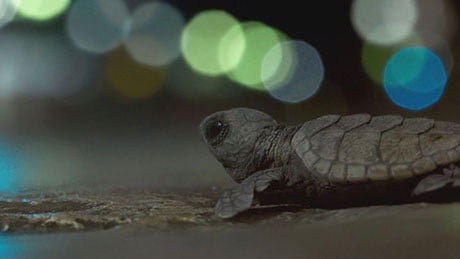The call of nature
By Julian Hector
02-06-2017
“Every turtle that was seen or filmed by the #PlanetEarth2 crew was collected and put back in the sea.” That was a tweet sent from the BBC Earth account linked to episode six of Planet Earth II, but it got over 10,000 re-tweets, 16,000 likes and said something very important.
Planet Earth II was seen by half the population in the UK – upwards of 32 million people. The digital trail was seen by more than 60 million worldwide and 400 million watched the powerful story of hatching marine iguanas running the gauntlet of racer snakes as they tried to make their way to the shore line.
Eye-watering numbers by any measure, and it was truly pleasing that the natural world can thrill, captivate and engage. But do we need those numbers to remind us that audiences love nature?
Yes we do. The numbers show that Planet Earth II attracted over 40% of the available millennial audience in the UK – those born in the 00’s – and a similar percentage of the available black, Asian and minority ethnic audience. Such great success showed Planet Earth II had reached both loyal viewers and new audiences. There is no doubt that if a programme is the subject of conversation the following day, in reviews, at bus stops and at the water dispenser, then that is one great measure of success.
In the digital space the conversation is immediate, both commenting on the TV broadcast programme or responding to the many digital conversations. But what are people talking about?
What stands out is that audiences relate to emotional storytelling, understanding the motivation of individual animals, much the same as soap operas engage with the motivation of individual characters. In real life and in the natural world, dramas constantly unfold where an individual’s survival and reproduction drive much of the agenda. Natural history filmmaking has traditionally been the art of the close-up, but today wildlife filmmakers not only work at the technical boundary of what is possible, they define the boundary.
The filmmakers not only get you close to wildlife, they engage you with the unfolding individual life histories, and that storytelling truly speaks to modern audiences.

Planet Earth II’s turtle subjects attracted much digital attention
People are natural storytellers and we set the context of our stories in the world as we see it. In this way the natural world informs all of us, whether by its beauty or its brutality it keeps us alive. While the natural world is being squeezed out by the increasing demands of a global population, it might also be the case that audiences are taking sanctuary in broadcasts of the natural world – an agenda unfolding despite everything else.
The immediacy of digital can create a shared anxiety that spreads through audiences like wildfire, whether through war, famine, migration or political change. That tweet, assuring Twitter followers that the baby turtles disorientated by city lights were collected and returned to the sea, showed us that our television audience engaged in the powerful dramatic storytelling and wanted more.
The fact that audiences were on the edge of their seats willing an iguana to ‘make it’ is engagement with emotional storytelling, understanding the motivation of the characters.
With most of the global population living in towns and cities, our promise to get audiences closer and more engaged carries a heavy responsibility. This might be their only connection with the unfolding stories of the natural world and their relationship with it.














.jpg)




























